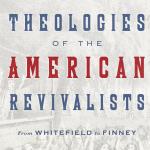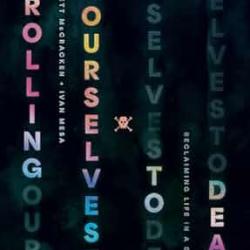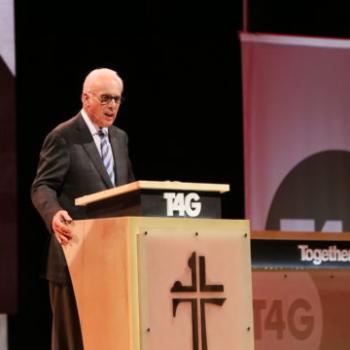There’s something sweetly quaint about John Stott’s One People: Laymen and Clergy in God’s Church. Originally published in the 1960s, it was one of his first books. And while it’s not one of his best (most people would point to The Cross of Christ, though I’ve always been a fan of The Incomparable Christ), it is a solid little reflection on the relationship between the pastor and the congregation. Or, to put it in Stott’s Anglican terms, the relationship between the ‘laity’ and the ‘clergy.’ But I’m not Anglican, so we’ll stick with what works best for my Baptist sensitivities…
Stott argues that there are four possible views of the relationship between the congregation and the preacher:
- Clericalism: This is the view that sees the pastor as the truly important part of the service, with the congregation being (theologically) little more than observers. We might here think of the Roman Catholic mass as an extreme example, where service can happen without a congregation as long as a priest is present, while the same is not true in reverse. Stott is writing within the bounds of orthodoxy, and so the opinions he’s aiming at merely elevate the pastor far above the congregation–inappropriately so. This view is what he believes he is primarily responding to in his own day in England.
- Anticlericalism: This view is the opposite of clericalism, which despises pastors/elders rather than despising the congregation. Were Stott writing in an American context, this is undoubtedly the view he would have spent more time rebuking.
- Dualism: This view says that we ought to draw a line between the pastor and the congregation, assign each their (vastly different) tasks, and then strictly patrol the boundary between the two. While this position might appear to have some appeal and Biblical grounding (the Bible does after all talk about the role of pastors), this position draws a false distinction between people. At the end of the day, the only division the Bible recognizes is between the saved and the lost, the church and the world, the City of God and the city of man.
- Service: Stott’s position is that the relationship between the pastor and the congregation ought to be one of service. The bulk of this short book is aimed at working out a framework for this relationship in the context of our worship and our witness.

One People is consequently a useful little book, and I’m happy to recommend it.
And yet, I said it’s ‘quaint’ because of some of Stott’s examples and suggestions. For example, he’s very excited by this new idea of ‘small groups,’ which will surely restore fellowship and depth to an increasingly shallow body. Now, 40+ years down the road, we can look back and see how, for all its strengths, the small group movement has either supplanted or simply further gutted the church of meaningful participation. Stott couldn’t have known that, and I’m sure that at his time small groups were revolutionary. But then again, Christianity is hardly supposed to be a bastion of ‘revolutionary’ thought (aside from the core of the Gospel itself)–and further division of the church into loosely independent cells is a questionable activity at best. Which isn’t to say I’m against small groups; I think they’re quite useful in their place. I just think they are only useful in their place, which is not to bear the weight of Christian fellowship.
Again, this book is worth reading. But I don’t know that it’s worth going too far out of your way for. If you see it in a used book store, pick it up. Otherwise, move on to Stott’s better stuff.
Dr. Coyle Neal is co-host of the City of Man Podcast and an Assistant Professor of Political Science at Southwest Baptist University in Bolivar, MO.













